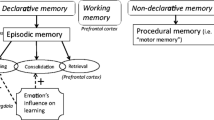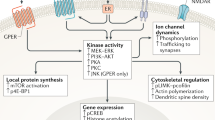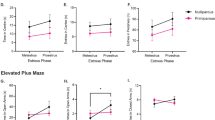Abstract
Rationale
Studies in rodents observed that the effects of stress on memory are modulated by gonadal hormones. In animals and humans, stress and cortisol treatment impairs memory retrieval.
Objectives
To investigate if the acute impairing effect of cortisol on memory retrieval in women is influenced by endogenous or exogenous gonadal steroids.
Methods
Three groups of women were studied: women during mensis (n=13), women in the luteal phase (n=14), and women using oral contraceptives (OCs; n=20). In a double-blind crossover fashion, they received cortisol (30 mg) or placebo 1 h prior to memory retrieval testing.
Results
Overall cortisol led to a significant impairment of memory retrieval. Further exploratory analysis using t tests showed that both groups of naturally cycling women were significantly impaired (p<0.05), while no effect was apparent in the OC users (p=0.29).
Conclusions
The current results could suggest that OC use is associated with a reduced sensitivity of the brain to acute cortisol elevations. In contrast, menstrual-cycle-associated changes in estradiol and progesterone concentrations appear to have no strong influence on this acute cortisol effect. The underlying neurobiological mechanisms of these behavioral findings remain to be elucidated.

Similar content being viewed by others
References
Altemus M, Redwine L, Leong YM, Yoshikawa T, Yehuda R, Detera-Wadleigh S, Murphy DL (1997) Reduced sensitivity to glucocorticoid feedback and reduced glucocorticoid receptor mRNA expression in the luteal phase of the menstrual cycle. Neuropsychopharmacology 17:100–109
Bisagno V, Bowman R, Luine V (2003) Functional aspects of estrogen neuroprotection. Endocrine 21:33–41
Borkenau P, Ostendorf F (1993) NEO-Fünf-Faktoren-Inventar (NEO-FFI) nach Costa und McCrae. Hogrefe, Göttingen
Bowman RE, Zrull MC, Luine VN (2001) Chronic restraint stress enhances radial arm maze performance in female rats. Brain Res 904:279–289
Brickenkamp R (1994) Test D2: Aufmerksamkeits-Belastungs-Test; Handanweisung. Hogrefe, Göttingen
Cohen J (1988) Statistical power analysis for the behavioral sciences. LEA, New York, NY
Conrad CD, Jackson JL, Wieczorek L, Baran SE, Harman JS, Wright RL, Korol DL (2004) Acute stress impairs spatial memory in male but not female rats: influence of estrous cycle. Pharmacol Biochem Behav 78:569–579
Croiset G, Nijsen MJ, Kaphuis PJ (2000) Role of corticotropin-releasing factor, vasopressin and the autonomic nervous system in learning and memory. Eur J Pharmacol 405:225–234
Cumming DC (1990) Menarche, menses, and menopause: a brief review. Clevel Clin J Med 57:169–175
de Quervain DJ, Roozendaal B, Nitsch RM, McGaugh JL, Hock C (2000) Acute cortisone administration impairs retrieval of long-term declarative memory in humans. Nat Neurosci 3:313–314
de Quervain DJ, Henke K, Aerni A, Treyer V, McGaugh JL, Berthold T, Nitsch RM, Buck A, Roozendaal B, Hock C (2003) Glucocorticoid-induced impairment of declarative memory retrieval is associated with reduced blood flow in the medial temporal lobe. Eur J Neurosci 17:1296–1302
Fernandez G, Weis S, Stoffel-Wagner B, Tendolkar I, Reuber M, Beyenburg S, Klaver P, Fell J, de Greiff A, Ruhlmann J, Reul J, Elger CE (2003) Menstrual cycle-dependent neural plasticity in the adult human brain is hormone, task, and region specific. J Neurosci 23:3790–3795
Franz WB III (1988) Basic review: endocrinology of the normal menstrual cycle. Prim Care 15:607–616
Gould E, Tanapat P, Rydel T, Hastings N (2000) Regulation of hippocampal neurogenesis in adulthood. Biol Psychiatry 48:715–720
Groschl M, Biskupek-Sigwart J, Rauh M, Dorr HG (2001) Practicability of commercial methods for the measurement of 17α-hydroxyprogesterone and progesterone in human saliva. J Lab Med 25:36–42
Hausmann M, Slabbekoorn D, Van Goozen SH, Cohen-Kettenis PT, Gunturkun O (2000) Sex hormones affect spatial abilities during the menstrual cycle. Behav Neurosci 114:1245–1250
Hedges LV, Olkin I (1985) Statistical methods for meta-analysis. Academic, Orlando, FL
Het S, Ramlow G, Wolf OT (2005) A meta-analytic review of the effects of acute cortisol administration on human memory. Psychoneuroendocrinology 30:771–784
Hsu FC, Garside MJ, Massey AE, McAllister-Williams RH (2003) Effects of a single dose of cortisol on the neural correlates of episodic memory and error processing in healthy volunteers. Psychopharmacology (Berl) 167:431–442
Kirschbaum C, Kudielka BM, Gaab J, Schommer NC, Hellhammer DH (1999) Impact of gender, menstrual cycle phase, and oral contraceptives on the activity of the hypothalamus–pituitary–adrenal axis. Psychosom Med 61:154–162
Kudielka BM, Kirschbaum C (2005) Sex differences in HPA axis responses to stress: a review. Biol Psychol 69:113–132
Kuhlmann S, Kirschbaum C, Wolf OT (2005a) Effects of oral cortisol treatment in healthy young women on memory retrieval of negative and neutral words. Neurobiol Learn Mem 83:158–162
Kuhlmann S, Piel M, Wolf OT (2005b) Impaired memory retrieval after psychosocial stress in healthy young men. J Neurosci 25:2977–2982
Likis FE (2002) Contraceptive applications of estrogen. J Midwifery Women's Health 47:139–156
Luine V (2002) Sex differences in chronic stress effects on memory in rats. Stress 5:205–216
Lupien SJ, Lepage M (2001) Stress, memory, and the hippocampus: can't live with it, can't live without it. Behav Brain Res 127:137–158
McAllister-Williams RH, Rugg MD (2002) Effects of repeated cortisol administration on brain potential correlates of episodic memory retrieval. Psychopharmacology (Berl) 160:74–83
McEwen BS, Alves SE (1999) Estrogen actions in the central nervous system. Endocr Rev 20:279–307
Newcomer JW, Selke G, Melson AK, Hershey T, Craft S, Richards K, Alderson AL (1999) Decreased memory performance in healthy humans induced by stress-level cortisol treatment. Arch Gen Psychiatry 56:527–533
Oge A, Sezer ED, Ozgonul M, Bayraktar F, Sozmen EY (2003) The effects of estrogen and raloxifene treatment on the antioxidant enzymes and nitrite–nitrate levels in brain cortex of ovariectomized rats. Neurosci Lett 338:217–220
Rohleder N, Wolf JM, Piel M, Kirschbaum C (2003) Impact of oral contraceptive use on glucocorticoid sensitivity of pro-inflammatory cytokine production after psychosocial stress. Psychoneuroendocrinology 28:261–273
Roozendaal B (2002) Stress and memory: opposing effects of glucocorticoids on memory consolidation and memory retrieval. Neurobiol Learn Mem 78:578–595
Schwarzer R (1989) Meta-analysis programs. Free University of Berlin, Berlin
Shansky RM, Glavis-Bloom C, Lerman D, McRae P, Benson C, Miller K, Cosand L, Horvath TL, Arnsten AF (2004) Estrogen mediates sex differences in stress-induced prefrontal cortex dysfunction. Mol Psychiatry 9:531–538
Shirtcliff EA, Granger DA, Schwartz EB, Curran MJ, Booth A, Overman WH (2000) Assessing estradiol in biobehavioral studies using saliva and blood spots: simple radioimmunoassay protocols, reliability, and comparative validity. Horm Behav 38:137–147
Shirtcliff EA, Granger DA, Schwartz E, Curran MJ (2001) Use of salivary biomarkers in biobehavioral research: cotton-based sample collection methods can interfere with salivary immunoassay results. Psychoneuroendocrinology 26:165–173
Shors TJ (2004) Learning during stressful times. Learn Mem 11:137–144
Shors TJ, Pickett J, Wood G, Paczynski M (1999) Acute stress persistently enhances estrogen levels in the female rat. Stress 3:163–171
Steyer R, Schwenkmetzger P, Motz P, Eid M (1994) Testtheoretische Analyse des Mehrdimensionalen Befindlichkeitsfragebogens (MDBF). Diagnostica 40:320–328
Studd J, Panay N (2004) Hormones and depression in women. Climacteric 7:338–346
Subramanian S, Matejuk A, Zamora A, Vandenbark AA, Offner H (2003) Oral feeding with ethinyl estradiol suppresses and treats experimental autoimmune encephalomyelitis in SJL mice and inhibits the recruitment of inflammatory cells into the central nervous system. J Immunol 170:1548–1555
Wechsler D (1987) Wechsler memory scale-revised. Harcourt Brace Jovanovich, San Antonio, TX
Wolf OT (2003) HPA axis and memory. Best Pract Res Clin Endocrinol Metab 17:287–299
Wolf OT, Convit A, McHugh PF, Kandil E, Thorn EL, De Santi S, McEwen BS, de Leon MJ (2001a) Cortisol differentially affects memory in young and elderly men. Behav Neurosci 115:1002–1011
Wolf OT, Schommer NC, Hellhammer DH, McEwen BS, Kirschbaum C (2001b) The relationship between stress induced cortisol levels and memory differs between men and women. Psychoneuroendocrinology 26:711–720
Wood GE, Shors TJ (1998) Stress facilitates classical conditioning in males, but impairs classical conditioning in females through activational effects of ovarian hormones. Proc Natl Acad Sci U S A 95:4066–4071
Wood GE, Beylin AV, Shors TJ (2001) The contribution of adrenal and reproductive hormones to the opposing effects of stress on trace conditioning in males versus females. Behav Neurosci 115:175–187
Wright KP Jr, Badia P (1999) Effects of menstrual cycle phase and oral contraceptives on alertness, cognitive performance, and circadian rhythms during sleep deprivation. Behav Brain Res 103:185–194
Young EA (1998) Sex differences and the HPA axis: implications for psychiatric disease. J Gend-Specif Med 1:21–27
Acknowledgements
This study was supported by a grant from the German Research Foundation (DFG; WO 733/6-1). The experiment complies with the current law of Germany.
Author information
Authors and Affiliations
Corresponding author
Rights and permissions
About this article
Cite this article
Kuhlmann, S., Wolf, O.T. Cortisol and memory retrieval in women: influence of menstrual cycle and oral contraceptives. Psychopharmacology 183, 65–71 (2005). https://doi.org/10.1007/s00213-005-0143-z
Received:
Accepted:
Published:
Issue Date:
DOI: https://doi.org/10.1007/s00213-005-0143-z




